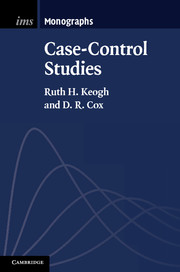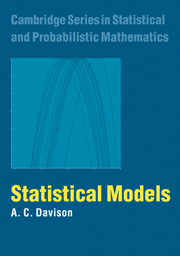Case-Control Studies
The case-control approach is a powerful method for investigating factors that may explain a particular event. It is extensively used in epidemiology to study disease incidence, one of the best-known examples being Bradford Hill and Doll's investigation of the possible connection between cigarette smoking and lung cancer. More recently, case-control studies have been increasingly used in other fields, including sociology and econometrics. With a particular focus on statistical analysis, this book is ideal for applied and theoretical statisticians wanting an up-to-date introduction to the field. It covers the fundamentals of case-control study design and analysis as well as more recent developments, including two-stage studies, case-only studies and methods for case-control sampling in time. The latter have important applications in large prospective cohorts which require case-control sampling designs to make efficient use of resources. More theoretical background is provided in an appendix for those new to the field.
- Written specifically for statisticians
- Covers important developments in the field from the past 30 years
- May be used as the basis for a short postgraduate course
Reviews & endorsements
'This book will rapidly become the bible for researchers using case control studies. It covers essentially all aspects of such designs and their application.' David J. Hand, Imperial College London
Product details
No date availableHardback
9781107019560
293 pages
235 × 156 × 20 mm
0.55kg
30 b/w illus. 20 tables
Table of Contents
- Preface
- Preamble
- 1. Introduction to case-control studies
- 2. The simplest situation
- 3. Matched case-control studies
- 4. A general formulation
- 5. Case-control studies with other than two outcomes
- 6. Special sampling designs
- 7. Nested case-control studies
- 8. Case-subcohort studies
- 9. Misclassification and measurement error
- 10. Synthesis of studies
- Appendix. A theoretical diversion
- References
- Index.










